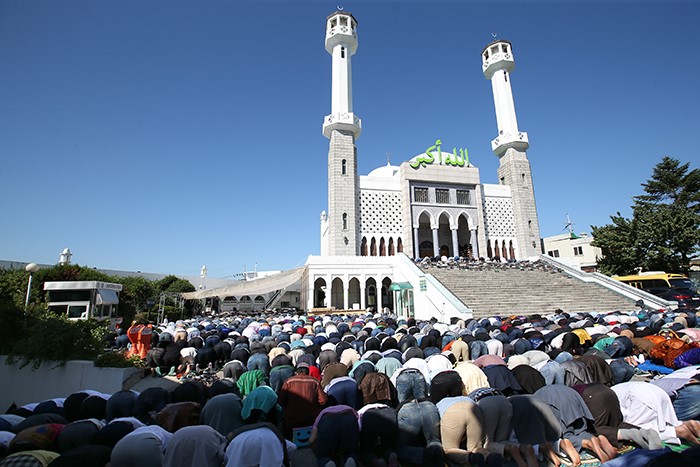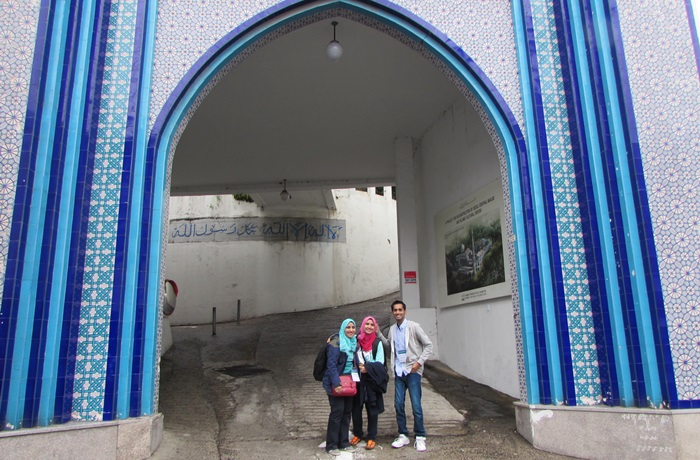
The devout join hands in prayer at the Seoul Central Masjid, the first mosque in Korea, on Sept. 1 to celebrate Eid al-Adha.
By Kim Young Deok and Kim Young Shin
Photos = Kim Sunjoo
On Sept. 1, some 2,000 Muslims gathered at the Seoul Central Masjid, the oldest mosque in Korea, to celebrate the grand Muslim holiday of Eid al-Adha, the "Sacrificial Feast."
Eid al-Adha is a Muslim holiday, just like Korea’s Seollal Lunar New Year’s or Chuseok Mid-Autumn Harvest Festival. It falls on the 10th day of the 12th month of the Islamic calendar. Eid means "holiday" and adha, "sacrifice."
The holiday commemorates God sending a scapegoat to Abraham who willingly tried to sacrifice his son as an act of obedience to God. During the holiday, devout Muslims renew their obedience to and faith in God.
To celebrate Eid al-Adha, devout Muslims gather at public places, not necessarily mosques, to offer group prayers that are followed by a ceremony of sacrificing a goat or a lamb, and sharing the meat with the poor and with one's neighbors and family.

Visitors to the Seoul Central Majid greet each other after a group prayer on Sept. 1, the day of the sacrificial feast.
In Korea, devout Muslims from many different nations, including Arabs and Persians, as well as people from Southeast Asia, Central Asia, Africa or elsewhere, gather at the Seoul Central Masjid, which hosts the biggest service in the country.
To adhere to Korea’s Livestock Products Sanitary Control Act, the Korea Muslim Federation does not perform an actual animal sacrifice on-site. Instead, it offers bread and milk to those who came to the mosque in Itaewon on Sept. 1. Many Muslims visit nearby halal restaurants with their friends and family after the service, to follow the tradition of having a delicious lamb meal on that day.
“Eid al-Adha is the biggest holiday and festival for Muslims,” said Faraz Qasim, a student studying in Korea. “I got to see all my Pakistani friends here and we all celebrated together. It's usually kind of tough to meet up with them all.”
“In Saudi Arabia, people visit their relatives and friends during the five-day holiday of Eid al-Adha, but in Korea, it's not an official holiday. So you can only enjoy the festival for two or three days over the weekend,” said Mohammed Al FaiFi, currently working at the Seoul St. Mary’s Hospital. “I'm thankful that the Korea Muslim Federation offers a group prayer ceremony.”
kyd1991@korea.kr